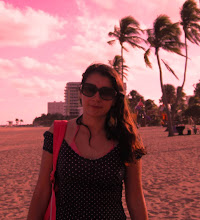It seems that cities and public spaces are essential components of the evolving form of participatory cities and are the main space of manifestation of movements such as the "Occupy" or "Indignados". In Spain, Greece, Britain, Mexico, USA and many other countries, a large amount of protesters gathered in public spaces, to protest. The protests took place in spaces where people did not used to gather, taking place in front of the Wall Street (New York), the Parliament (Greece), church steps (London), or shopping malls (Madrid) where protesters had no right to assemble. The Occupy movements emerged many questions about why these movements are manifested in cities? how we perceive public space and who owns it? and who and how can use it? The answer to the first question is easy. The density, diversity and function of cities combined with the fact that serve as strategic points in the global economic system make them ideal sites for social movements and protests. Moreover, the financial crisis struck the population of the cities and as most of them are related more with the third sector of economy (services).
The questions about the public space are even more interesting. Even if the nation gives through constitution rights to the citizens, nowadays we see cities to have the power to take them away. In New York City, for instance, you need permission from the local authorities if more than 20 people gather in a park or if more than 50 bicycles parade on a street. Little parks and open spaces turn to be controlled by private interests and have their own private police. Benches are being designed in a way that controls how people sit and new strategies are being created to prevent people from using a public space for long periods of time. In order to "re-occupy" the space the protesters used tents and sleeping bags to test the city’s limits on freedom of assembly. Unfortunately, after a while cities began evicting protestors in a coordinated effort between the local government and the police.
The Greek "Indignados" movement (3 June 2011)
Syntagma Square - The Parliament
People Occupying the square with tents and sleeping bags
(source: personal files)




0 comments:
Post a Comment